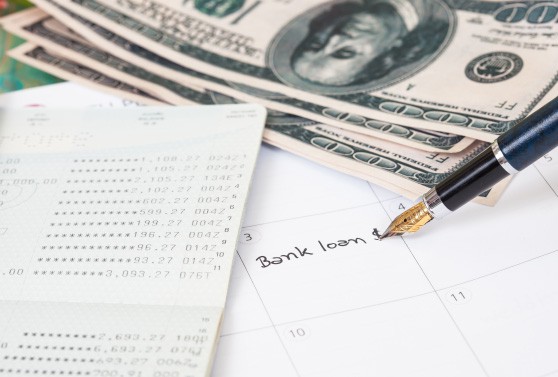ABSTRACT
Purifying non-halal conventional investments in a savings vehicle like a 401(k) plan and rendering them halal is a difficult subject. This issue is often raised by Shari’ah-sensitive investors who have resolved to make the transition to Halal in their financial affairs. The desire to more fully follow the principles of Islam is in itself commendable and should be considered guidance from God.
The purification of assets that are at their base impure is not possible, however, according to the tenets of Islamic Sacred Law. Instead, there are several steps that should be taken to embrace a halal strategy in one’s financial affairs, including the most important step of all—repentance from the previous action.
UNDERSTANDING AAOIFI
First, note that Halal investing is derived from rules outlined by the major juridical sources in Islam: the Holy Qur’an, the traditions of the Prophet Muhammad (peace by upon him), and the consensus of his companions and our noble scholars. The last category, our scholars, are those that Prophet Muhammad himself referred to as “the inheritors of the prophets.” As such, scholarly opinions should not be taken lightly.
Azzad refers to the Accounting and Auditing Organization for Islamic Financial Institutions, or AAOIFI, as the gold standard for enumerating the principles of halal investing. This is because AAOIFI is made up of a qualified and trusted group of scholars who excel at applying Islamic principles to financial matters. Azzad does not make the rules of halal investing. We follow AAOIFI guidelines and advise clients accordingly.
To our knowledge, there is no set of AAOIFI guidelines, however, that explain how to purify non-halal assets. Traded items must be halal in the first place, according to rules of Islamic financial transactions. Acquiring non-halal assets is problematic, but putting them back into the market by selling them is problematic, too.
So, asking how to purify or to pay Zakah on haram (impermissible) assets is like asking the Islamic way to butcher a pig for dinner. In both cases, one is trying to apply the rules of Sacred Law to something that is at its core fundamentally unsound and impermissible. The lesson is to avoid the haram to begin with. One should keep his or her investments and financial affairs halal, and the problem can be avoided.
REPENTANCE IS KEY
The reality is that many Muslims are already invested in a questionable way, sometimes only through unintentional mutual fund holdings in an employer-sponsored plan. So, what does one do to rectify that situation? Provided that the profession is a halal one, any deferral amount or employer contribution to a 401(k) plan is considered halal.
The problem occurs when that money is invested in haram business activities. Whatever the situation may be, if one is interested in making his or her investments halal, the first and most important step is to regret the previous action. This is according to the head of Azzad’s Shari’ah Advisory Board, Dr. Mohamad Adam El-Sheikh. Dr. El-Sheikh says that other conditions apply, as well, including eliminating the haram investment. Divesting oneself of securities that deal in irresponsible and religiously impermissible business activities creates its own set of complications. How, for example, can someone who is opposed to interest-based banking and financial services profit from the sale of stock issued by such corporations? Should the proceeds be given away? What about the initial investment?
According to Dr. El-Sheikh, the initial investment, or principal, is acceptable to keep, but any profit from the sale of impermissible shares should be calculated and given away to an appropriate charity.
In the case of mutual funds, calculation becomes a challenge due to the admixture of halal and haram in most mutual fund portfolios, and fund managers often buy and sell the shares of different companies throughout the year. To keep track of all this, or to retroactively piece together the puzzle, can be a challenge.
This is why we counsel prevention at Azzad. If you’re just starting out or setting up an account for a loved one, make sure you stick to halal investments. You’ll save yourself a headache and, more importantly, help to clear a path to God, which is our ultimate purpose in this world.
If one seeks to wipe the slate clean and to begin anew, it is important to remember these steps to repentance:
1) Regret the action: Feel remorse.
2) Eliminate the Haram: Sell any impermissible securities.
3) Resolve never to repeat: Make the firm intention in the heart.
4) Right the wrong: Determine the amount of Haram earnings and give it to rightful owners.
Note: If it is not possible to give earnings to their rightful owners, earnings should be given to a charitable cause.
INVEST WITH FAITH
Remember that investing is still an important part of achieving one’s financial goals, from college savings to retirement and everything in between. It is important, however, to make sure that things are done the proper way.
Azzad is proud to offer the Azzad Funds to help Shari’ah-sensitive investors reach their goals without compromising their values. If you do not currently have access to halal mutual funds as investment options in your employer-sponsored retirement plan, talk to your human resources department and request that they add them. Or you can request that your retirement custodian company set up a self-directed brokerage account in order to invest in halal mutual funds.
Finally, please note that this white paper is for general informational purposes only. It is a good practice to consult your personal scholar or imam for an opinion that takes into consideration the particulars of your situation.
As the Holy Qur’an states: “… So ask the scholars if you do not know.” (21:7)
And God knows best.
Note: Investments are not FDIC insured, nor are they deposits of or guaranteed by a bank or any other entity, so you may lose money. Azzad does not guarantee that your investment objectives will be achieved. Past performance cannot guarantee future results.
Azzad only transacts business where it is properly registered or notice filed, or excluded or exempted from registration requirements. The Ethical Wrap Program is made available through an Investment Advisory Agreement and the firm’s ADV Part II brochure.
The Azzad mutual funds are available by prospectus only. To request a free copy including other important disclosure information, please call 888-862-9923, 4/2014©.




